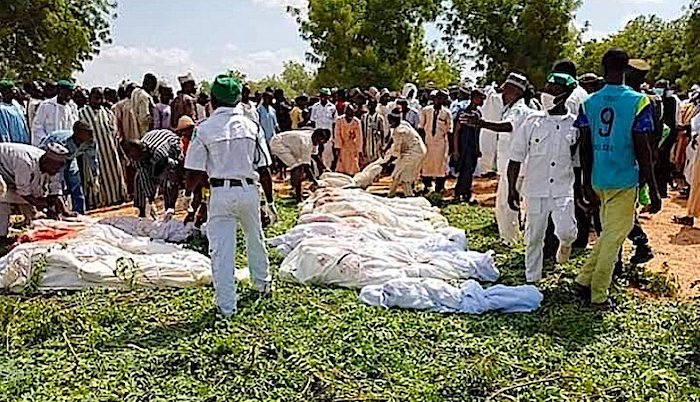According to research released by the Centre for Democracy and Development (CDD), at least 60,000 people have been killed in Nigeria’s 18 northern states due to insecurity in the previous ten years.
According to the CDD’s research, “Multiple Nodes, Common Cause: National Stock-take of Contemporary Insecurity and State Responses in Nigeria,” 14, 000 persons died between 2011 and 2021 in the Northwestern states of Jigawa, Kaduna, Kano, Kebbi, Sokoto, and Zamfara.
According to the report, which was signed by CDD Director Idayat Hassan, researchers measured conflict-related casualties in the North Central states of Federal Capital Territory (FCT), Kogi, Kwara, Nasarawa, Niger, and Plateau and discovered that approximately 11, 000 people were killed during the review period, while approximately 35, 000 people were killed in the Northeast states of Adamawa, Bauchi, Borno, Gombe, Taraba, and Yobe.
Tracing similar development and casualties across other geopolitical zones, CDD revealed in the report that similar development, particularly lack of education, absence of state actors, economic war, security forces, cultism, land use dispute, ethnicity, religion, failure of the justice system, overstretched security forces, and others, continued to fuel the ugly situation.
Sea piracy and robbery were major problems in the country’s South-South area, while illegal bunkering, political violence, herder/farmer disputes, oil spill, cultism, marginalization, human trafficking, and ritual slaughter are claimed to be stoking violence and instability.
According to the research, shifting livelihoods, the circulation of small guns and light weapons, corruption and poor access to justice, geographic and regional dynamics, and ideological issues all contributed to the country’s escalating instability and violence.
The research underlined the growing prevalence of misinformation and disinformation in conventional and new media domains, which may have exacerbated public concern and intergroup tensions regarding the country’s developing insecurity and official responses to it.
The following is an estimate of the number of individuals murdered in the Southeastern area, according to the report: 50 persons were killed in 2011, 92 in 2012, 68 in 2013, 68 in 2014, 22 in 2015, 225 in 2016, 325 in 2017, and 160 in 2018. In 2019, the figure was 114; in 2020, it was 110; and in 2021, it was 647.
According to the research, the development is also affecting the Southwestern states, particularly examples of herders/farmers fights and political concerns, which have resulted in kidnapping, rape, arson, and inert-communal violence and separation.
To solve the current scenario, CDD stated that local and national stakeholders must be prepared to attempt new techniques to reduce insecurity, emphasizing that the federal government’s kinetic measures may remain a phantom.
“Peacebuilding measures are urgently required in most, if not all, geopolitical zones to strengthen community cohesiveness in conflict-affected regions,” according to the research. The organization also asked for a greater study to improve knowledge of the situation in the country, saying that the movement of armaments throughout Nigeria is still imprecise and would benefit from more refined, local-level analysis and mapping of sources, destinations, and routes.
“Similarly, the link between drug production, use, and trafficking on the one hand, and insecurity on the other, is little unknown.” While militants are known to use drugs (bandits, for example, consume significant amounts of Indian hemp and tramadol), it is worth asking whether manufacturing centres have arisen within the nation and whether bandits or other militants profit from narcotics trans-shipment.”
